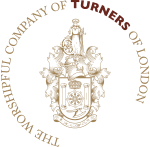St Bride’s priest who stayed to serve during the Great Plague is my inspiration to hope
Rev’d Canon Dr Alison Joyce
In recent days I have found myself thinking a great deal about Richard Peirson.
In 1665, the year of the Great Plague, Peirson was the priest here at St Bride’s Church, Fleet Street, the post that I now hold. Faced with the unimaginable horror of the plague, many clergy fled London. Peirson was one of the few who chose to remain. He stayed at his post, faithfully serving his people as best he could, for the whole of that terrible year.
Our burial register for the year 1665 makes for startling reading. Our parish was a densely populated area and the impact of the plague was devastating. In the month of September alone, when the plague was at its height, Peirson buried 636 people — 43 of them on a single day. There are so many burials that he signs his name at the bottom of each page of the register, rather than against individual entries. He buries whole families; he buries his church officials; he buries unknown and unidentified strangers: some entries read simply: “A child from Kingshead Ally” or “A man from new street”. The symptoms of bubonic plague were horrific and the recovery rate was effectively nil.
I can’t help wondering how Peirson kept going during that year. I wonder what he prayed about and how it affected his faith; I wonder what kept him here, quietly and steadfastly ministering to his flock, day after dreadful day, when every human instinct within him must have craved escape. And Peirson was not alone. Churches were essential hubs of social care for the most vulnerable and one of his churchwardens, Henry Clarke, also chose to remain. Clarke was a wealthy man, who also could have left; yet he, too, stayed. When the plague took Clarke, his brother William stepped in and took over his role. He survived for a fortnight.
We live in a time of fear and uncertainty during the present pandemic. And yet, compared with Peirson, I have it easy. I do not have to take hard decisions about whether or not to expose myself to contagion, for the simple reason that I am bound by the same self-distancing rules as everyone else (at this point I must pause to salute our valiant and dedicated NHS staff who remain in precisely that place of danger).
My pastoral work continues, but these days it is a ministry of telephone calls, emails and Facetime. I offer such practical help and support to the vulnerable as I can, but it is of necessity delivered at (more than) arm’s length. Much of my day is solitary. My rectory is connected to our church, enabling me to keep a candle burning before our main altar and continue a ministry of prayer, including for all journalists, part of our distinctive ministry at St Bride’s. I record sermons, surrounded by empty pews, before they are collated with archive recordings of hymns and anthems to create our webcast services each Sunday. And yet I am reminded on a daily basis of the importance of this strange virtual ministry. I am discovering that it is possible to sustain a very real sense of community that is a lifeline, especially for those who are isolated and alone, bored, frustrated or simply fearful.
It surprises me when people regard the Christian faith as a kind of celestial insurance policy against bad things happening to you. The first followers of Jesus certainly didn’t see it like that. In dedicating their lives to following the crucified and risen Christ they knew that their discipleship would take them into the very heart of darkness, not away from it. Hope is no hope at all unless it can engage with utter despair and meaninglessness.
Remarkably, Peirson survived the plague. In August 1666 he was succeeded by Paul Boston, just a fortnight before the Great Fire of London destroyed our church. Boston kept the worship going in a tabernacle in our churchyard until the foundations of our present Wren church were laid. In his will he left St Bride’s money to buy new communion silverware, which I use here each Sunday morning (in normal times). When I do so I feel a direct connection with these extraordinary men. And I thank God for them.
The Rev’d Canon Dr Alison Joyce is rector of St Bride’s Church in Fleet Street, London, and Honorary Chaplain of the Worshipful Company of Turners
Published in The Times, 18 April 2020
Pandemics (and how to deal with them), The Rev’d Canon Dr Alison Joyce, Rector of St Bride’s
Online worship, live streams & catch-up, St Bride’s Church
Back to News
